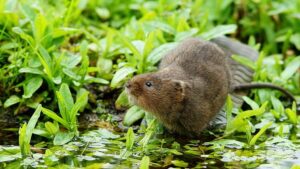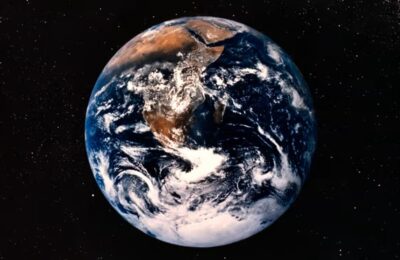Via Labourhub

Mike Hedges AM discusses the recommendations of an expert panel commissioned by the Welsh Government
Biodiversity loss and ecosystem collapse is a leading threat to humanity. The restoration of our natural world is essential for the services that complex ecosystems provide, such as fresh water to drink and healthy soils for our food to grow.
In Wales, the loss of forests, the plundering of seas, and the pollution of land and rivers caused by human activity have led to the vanishing of around half of Wales’s animal and plant life.
An expert-led ‘Biodiversity Deep Dive’ commissioned by the Welsh Government to assess how nature recovery across land and sea can best be accelerated has set out its recommendations. In response, the Welsh Government tripled its peatland restoration targets while promising further action to restore Wales’s wildlife and plants.
To further address this problem, the recommendations centre around the United Nations’ ’30 by 30’ goal, which aims to protect and effectively manage 30% of the planet’s marine and 30% of the planet’s land environment by 2030. The Deep Dive has been released ahead of a landmark UN Conference of the Parties (COP15) in Canada in December, where global leaders will meet to agree targets to combat the nature emergency.
The Minister also announced the establishment of an independent expert working group to monitor Wales’s progress against the targets.
The Biodiversity Deep Dive sets the following recommendations:
- Transform Wales’s protected sites portfolio so that it is better, bigger, and more effectively connected so that plants and wildlife can travel and adapt to climate change.
- Create a network of Nature Recovery Exemplar Areas across a range of different semi-natural habitats and identify opportunities for Other Effective Area-based Conservation Measures.
- Increase the footprint of the Marine Protected Areas network.
- Unlock the potential of designated landscapes (National Parks and Areas of Outstanding Natural Beauty) so they deliver more for nature.
- Ensure land and marine planning decisions consider biodiversity and that good decisions are incentivized.
- Build a solid foundation for future delivery through capacity building, behaviour change, awareness-raising and skills development.
- Develop and adapt monitoring and evidence frameworks to measure progress against ‘30 by 30’.
The Biodiversity Deep Dive is aimed to help us to urgently rethink our relationship with the natural world and how to make the best choices which benefit us now, and more importantly future generations.
I am pleased we are tripling our peatlands restoration targets to boost our insect and bird life and bring security to our fresh water supply.
The United Nations has said that urgent action taken over the next decade will determine the seriousness of the climate and nature emergencies.
We cannot continue to lose species and certainly not at the current rate. In Wales, one in three species are threatened with extinction and 51% of mammal species need urgent support. Formerly widespread in Wales, red squirrel and water vole are assessed as endangered and the hedgehog as vulnerable. 51% of mammal species in Wales need urgent action for their survival.
For biodiversity we need equilibrium. We cannot afford to lose top-end predators. If we do, then animals lower down the food chain multiply massively as we have seen with rats. This also puts additional pressure on animals further down the food chain. We need to support top-end predators to ensure equilibrium is maintained.
On rivers and the sea, we cannot continue to flood with untreated sewerage and agricultural pollution.
In the nineteenth century, there was a belief that you could put anything into the seas and rivers, and it would dissipate, no problem at all: it would just dilute down to nothing. In the second half of the twentieth century, we came to realise that this was not true and started to clean up our rivers. Unfortunately, we appear to be now reverting back to the nineteenth century thinking.
We have seen the growth of algae in the river Wye caused by agricultural pollution. The NRW undertook research prompted by excessive growth of algae, often caused by high phosphate levels in the water. Parts of the river turned green during sunny weather and when water flow was low, causing potential damage to ecosystems and biodiversity.
We have untreated sewage discharging into rivers, such as the Tawe by the Trebanos treatment works, which I have regularly reported to me by local anglers, causing pollution.
Microplastics can deposit and linger within riverbeds for as long as seven years before washing into the ocean. Microplastic pollution has been found in some of Wales’s most iconic and remote rivers and lakes including Llyn Cefni Reservoir in Anglesey and Afon Cegin, a river in North Wales. Half of the examined insects from rivers in South Wales turned out to carry microplastics that must have originated from the water or the soil they live in.
Mike Hedges is the member of the Welsh Senedd for Swansea East.



